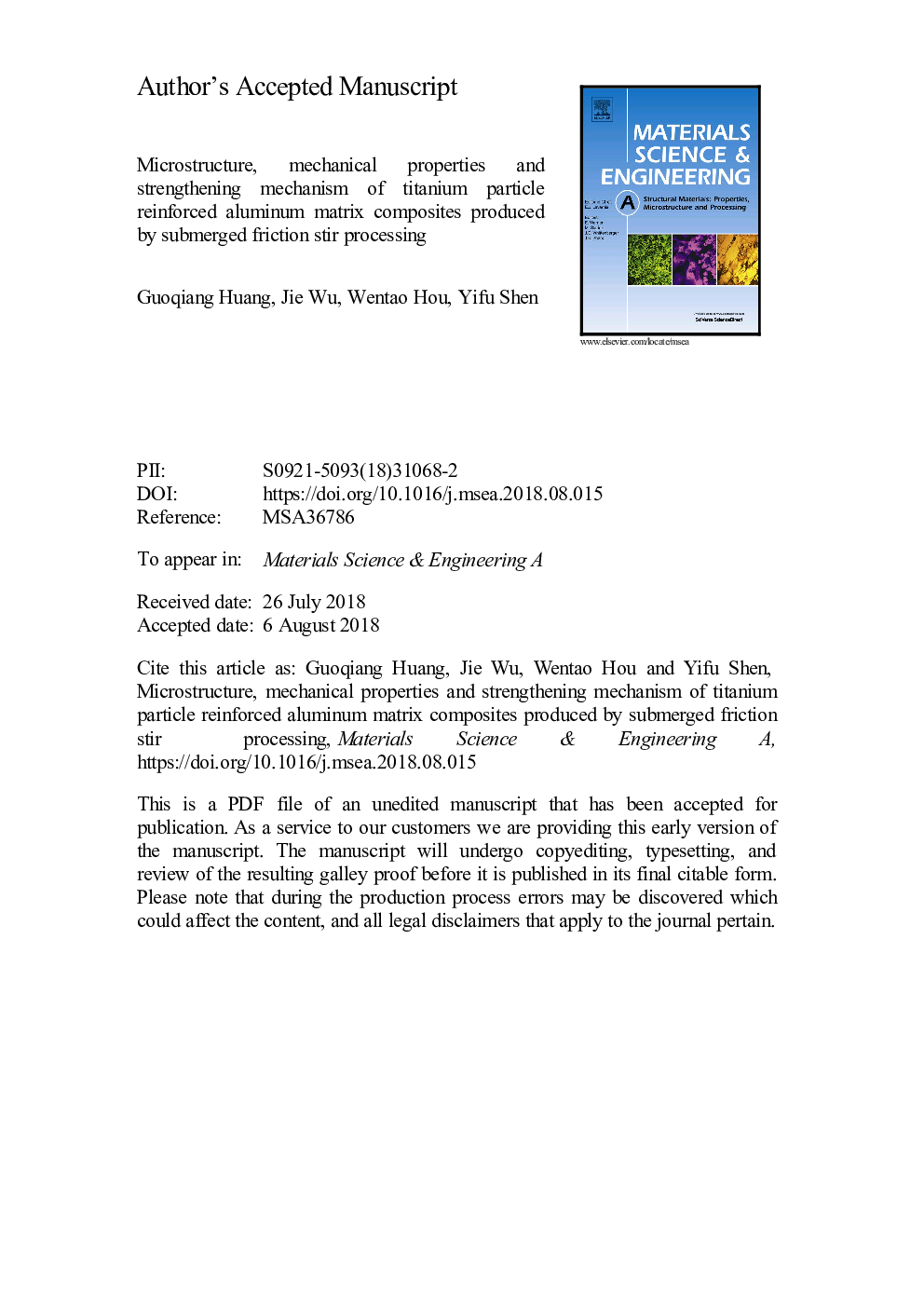| Article ID | Journal | Published Year | Pages | File Type |
|---|---|---|---|---|
| 7971593 | Materials Science and Engineering: A | 2018 | 32 Pages |
Abstract
In spite of the improved strength, aluminum matrix composites (AMCs) reinforced with ceramic particle generally suffer a great loss in ductility. A solution to this problem is to use rigid metallic particles as a substitute for ceramic particles. In the present study, multi-pass submerged friction stir processing (SFSP) was employed to efficiently scatter titanium (Ti) particles into 5083Al matrix to form bulk AMCs. The multi-pass processing accompanied by water cooling could ensure no only the rapid acquisition of well-distributed particle dispersion, but also the absence of Al/Ti interface reaction products as well as the formation of ultrafine grains. A continuous type of dynamic recrystallization process was responsible for grain refining. The additional water cooling had a strong suppression effect on the growth of recrystal grains, and meanwhile the addition of Ti particles could boost the recrystallization due to the generation of extra dislocations at Ti/Al interfaces. As a result, ultrafine grains with the average size of about 1â¯Âµm were created in the resultant AMCs. The SFSPed AMCs exhibited an improvement of about 78â¯MPa in the YS and 153â¯MPa in the UTS respectively as compared with as-received Al and simultaneously kept a considerable amount of ductility (23.2%). The fracture surfaces of the SFSPed AMCs indicated well-developed small and uniform dimples corroborating appreciable ductility. Strength contribution from various strengthening mechanisms for the YS improvement of SFSPed AMCs was analyzed in detail. Quantitative analysis indicated that grain boundary strengthening contributed most to the YS of SFSPed AMCs.
Keywords
Related Topics
Physical Sciences and Engineering
Materials Science
Materials Science (General)
Authors
Guoqiang Huang, Jie Wu, Wentao Hou, Yifu Shen,
